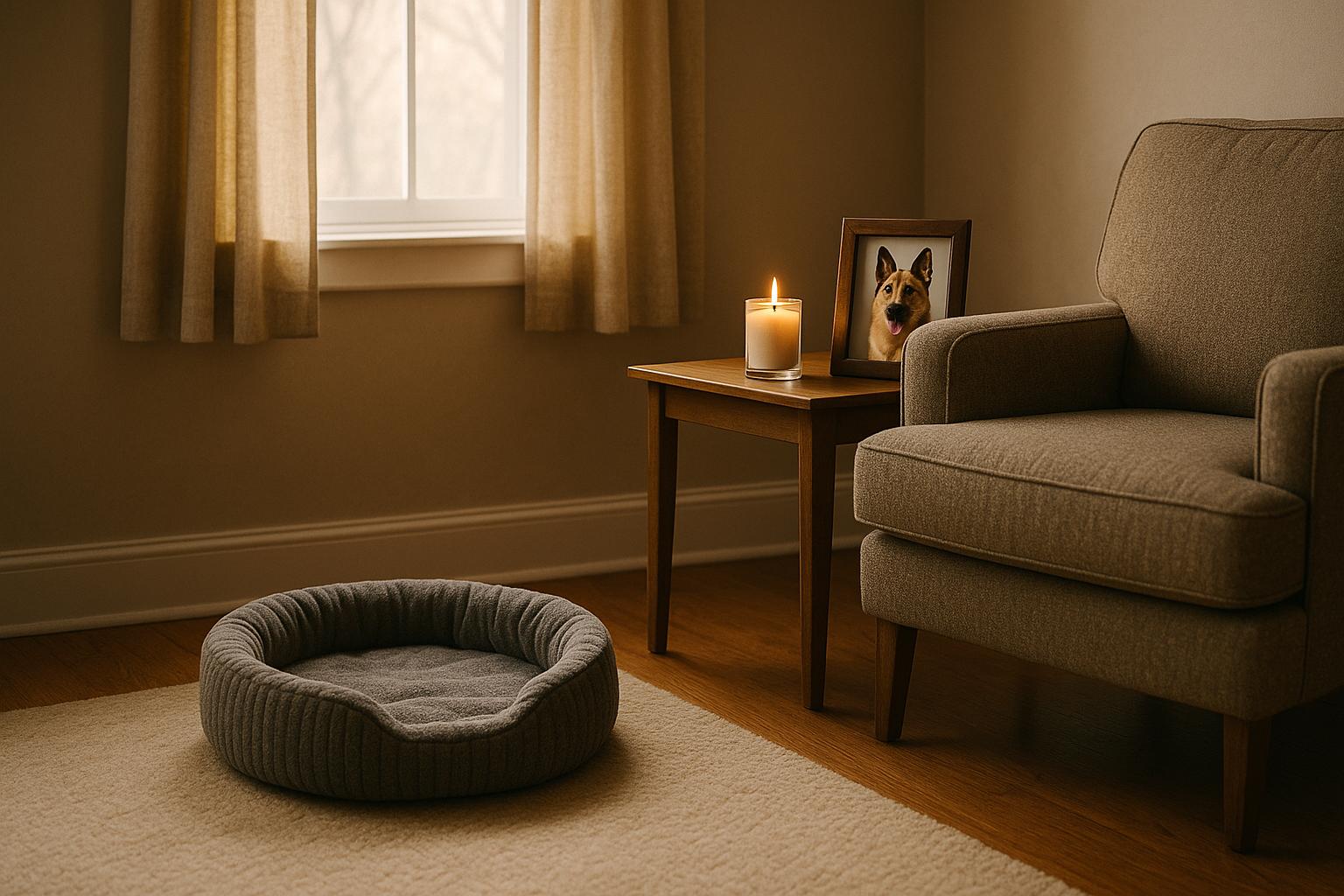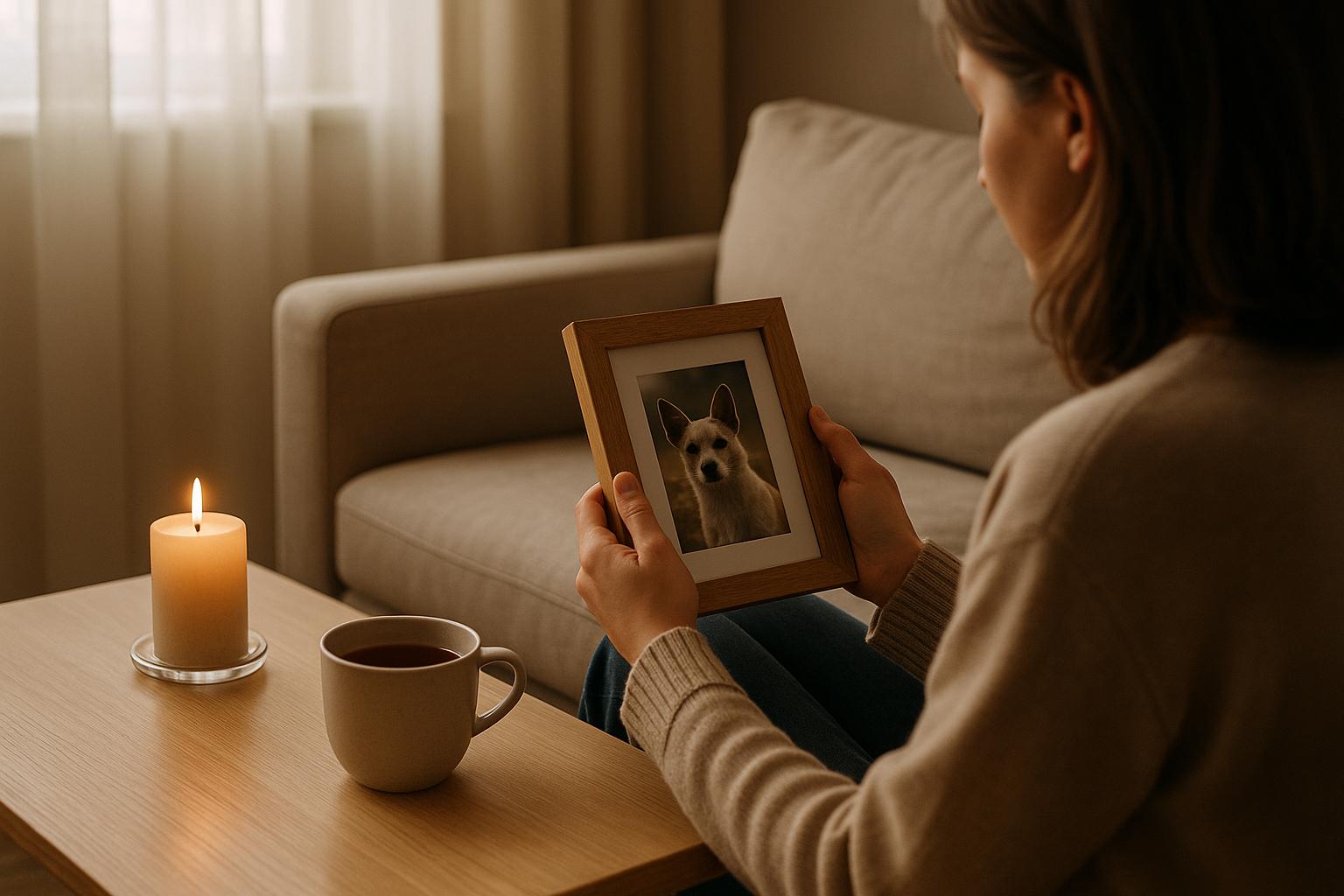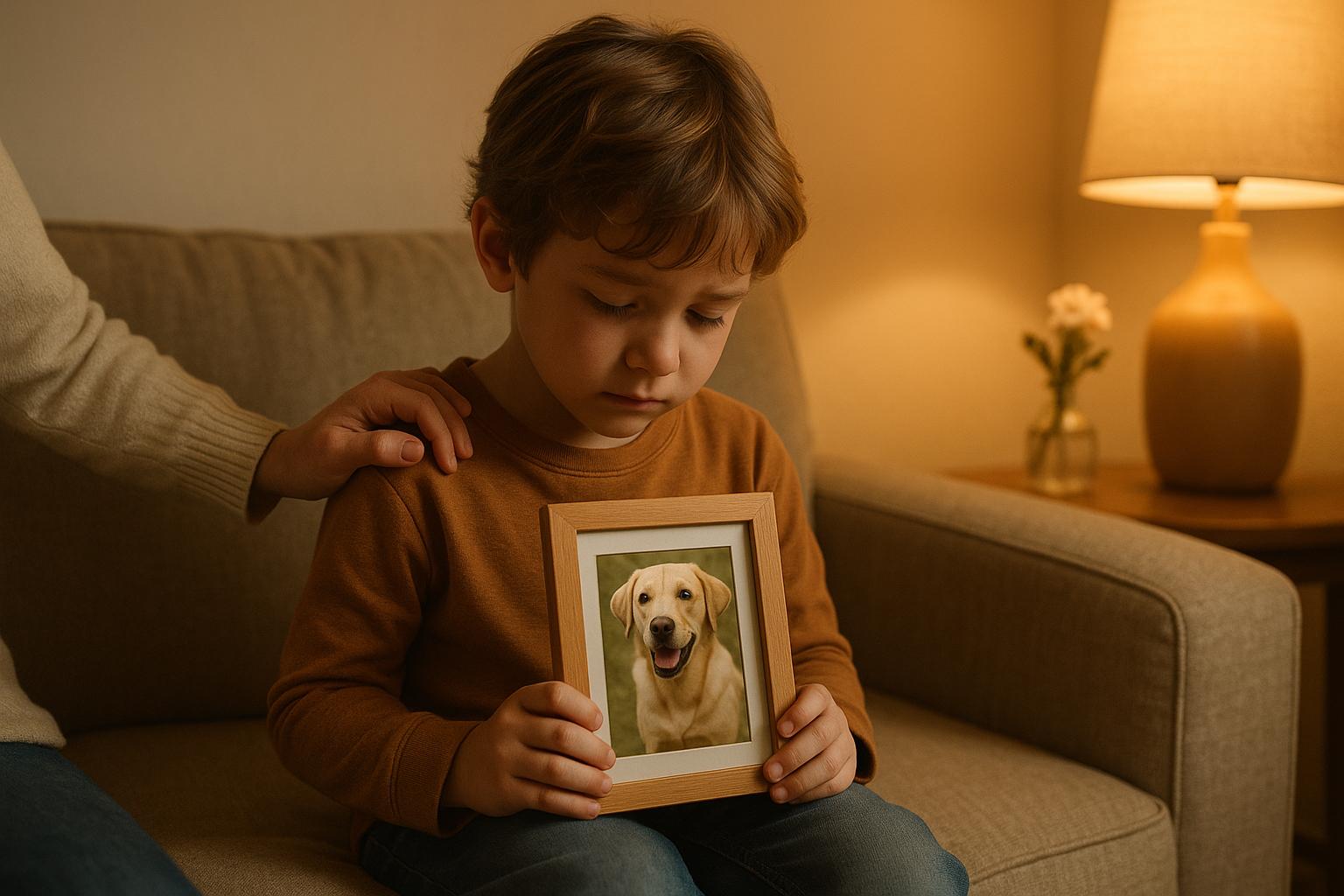Deciding whether to bring your other dog to euthanasia can be a deeply emotional and complex choice. Many experts recommend allowing companion pets to be present during the euthanasia process, as it can offer them a chance to say goodbye and aid in their grieving. Understanding the impact of this decision is crucial for the well-being of both your departing pet and the ones that remain.
During this difficult time, it’s essential to consider how your other dog may react. While some pets may find comfort in being there, others could become anxious or confused. Weighing these factors can help you make the most compassionate decision for your entire family, including your pets.
At Animal Aftercare, we understand the emotional weight of end-of-life decisions for pets. Our team is available 24/7 to support you through this process, offering compassionate care tailored to your situation. By choosing us for your pet's euthanasia and aftercare, you can ensure that your beloved companion receives the respect and dignity they deserve.
Understanding Pet Euthanasia
Euthanasia is a compassionate choice when a pet’s quality of life has significantly deteriorated. Understanding the specifics of the euthanasia process and the role of the veterinary staff can help you navigate this difficult time with clarity and confidence.
Euthanasia Procedure Explained
The euthanasia procedure is designed to be as peaceful as possible for your pet. Typically, it begins with the veterinary staff explaining the process to you, ensuring that you are comfortable and informed.
The procedure usually involves a sedative to relax your pet, followed by an intravenous injection that will swiftly lead to full sedation and cessation of vital functions. The entire process is gentle, allowing for a peaceful passing. You may choose to be present, as many find comfort in being with their pet during this time.
It is essential to ask the veterinarian any questions you may have to understand what will happen during the euthanasia. Each step is conducted with care to create a serene environment in which you can say goodbye.
The Role of the Veterinary Staff
Veterinary staff play a crucial role in making the euthanasia experience as supportive as possible. They are trained to handle both the technical aspects of the procedure and the emotional needs of pet owners.
The staff will guide you through each phase, answering questions and providing reassurance. They demonstrate empathy and understanding, recognizing the weight of your decision.
After the procedure, they will discuss options for aftercare, including cremation services. Companies like Animal Aftercare offer 24/7 pet and equine cremation services to ensure your beloved pet receives dignified treatment even beyond their passing. This level of care is vital during such a sensitive time.
Deciding to Bring Another Dog
Choosing whether to bring your other dog to the euthanasia appointment involves weighing emotional support and potential stressors for both pets. It’s essential to consider how your animal companion may react to the situation.
Benefits of Companion Presence
Having another dog present during euthanasia can provide comfort and companionship to your ailing pet. Familiar company may help ease the anxiety often felt in stressful situations.
Your other dog might sense the emotional state of your pet, resulting in a shared moment of connection. This behavior helps affirm the bond they have shared throughout their lives.
Additionally, witnessing the event can aid in their understanding of loss. It may prevent confusion over the sudden absence of their housemate. Interactions between pets can reestablish sense and routine, which may facilitate the grieving process later on.
Potential Drawbacks to Consider
While it can be comforting, bringing your other dog could also introduce potential issues. For instance, your healthy dog might feel anxiety or distress from the situation. They may become confused or agitated by the unfamiliar environment or your emotional state.
If your other dog has a history of being disruptive, having them in the room could take away from the peaceful environment needed during euthanasia. It’s vital to assess how your healthy pet typically reacts to stressful events and if their presence would provide solace or create more anxiety.
In some cases, it may be beneficial to explore alternative arrangements. Animal Aftercare offers compassionate guidance and support 24/7 for both euthanasia and cremation services. This can help ensure the best possible experience for every pet involved.
Preparing for the Euthanasia Appointment
Preparing for the euthanasia appointment involves creating an atmosphere of calmness and comfort for both you and your pet. You may also want to consider the option of home euthanasia, which can provide a more familiar setting for your furry friend.
Creating a Calm Environment
To ensure your pet feels secure, it's essential to set up a tranquil space. This could be a favorite room or spot where your dog feels most at ease. Remove any distractions and unnecessary stimuli like loud noises or sudden movements.
Consider keeping toys or blankets nearby that carry your dog’s scent. This familiarity can provide comfort during this difficult time. Soft music can also help to soothe both you and your pet.
Moreover, limit the number of people present to reduce anxiety for your pet. Choose calm, reassuring companions who understand the situation and can provide support to you.
Considering Home Euthanasia
Home euthanasia is often a compassionate option, allowing your pet to pass in a familiar environment. This method helps reduce the stress associated with a veterinary clinic visit.
Scheduling the appointment with Animal Aftercare ensures that you receive the best support during this sensitive time. They provide 24/7 pet and equine cremation and euthanasia services, ensuring that you can act when the time feels right.
A veterinary professional will come to your home, allowing you and your other pets to be present for the process if you choose. This intimate setting can facilitate a peaceful farewell, helping to ease the emotional intensity of the experience.
Aftercare for the Surviving Dog
After the loss of a companion animal, the surviving dog may need special attention to cope with grief. Your focus should be on helping them adjust while ensuring their emotional needs are met.
Dealing with Pet Loss
When a beloved pet passes, it's common for the surviving dog to exhibit signs of grief. They may search for their companion, show changes in appetite, or appear more withdrawn. Recognizing these behaviors is the first step in providing support.
You can help by maintaining a comforting presence. Engage in gentle interactions and encourage playtime. Offering extra affection can reassure your surviving dog during this difficult period.
Consider creating a memorial space for the deceased pet. This can provide a sense of closure for both you and your remaining animal companion. Additionally, providing opportunities for socialization with other dogs can help ease the feelings of loneliness.
Maintaining Routine and Normalcy
Dogs thrive on routine, which can provide stability during a time of upheaval. After a loss, try to keep feeding, walking, and play schedules unchanged. This familiarity can help reduce anxiety and stress for your remaining pet.
Incorporating positive activities, like trips to the park or special training sessions, can enhance your dog's mood. Consistency in their daily life is crucial to fostering a sense of security.
If the surviving dog continues to struggle with the absence, consult with a veterinarian or animal behaviorist for tailored advice. At Animal Aftercare, we understand how important it is to help pets transition smoothly. Our services are available 24/7 for all pet and equine cremation and euthanasia needs.
Logistical and Emotional Considerations
Bringing your other dog to a euthanasia appointment involves various logistical and emotional factors that require careful thought. You must balance the needs of your ailing pet with those of your other dog to make the right decision at such a challenging time.
Supporting the Pet Owner
As a pet owner, your emotional well-being is paramount during this period. The presence of your other dog can provide comfort, but it may also heighten your grief. Consider how your dog reacts to emotional situations. If they are calm and supportive, their presence might help both of you through this experience.
Reach out to friends, family, or professionals to discuss your feelings. This support network can ease the burden as you navigate these complex emotions. Remember to acknowledge your grief; doing so allows for a healthier mourning process.
Arranging Logistics for Euthanasia
Logistics for arranging euthanasia require attention to detail. First, consult with your veterinarian to determine the best time and location for the procedure. If you choose a home setting, ensure your space is calm and free of distractions.
Preparing for your other dog's presence is essential. Think about their comfort and potential reactions during the process. It may be beneficial to have someone nearby to manage your other dog if necessary. Consider scheduling the appointment with Animal Aftercare, who offer 24/7 Pet and Equine Cremation and Euthanasia, ensuring that the logistics align with your emotional needs.







